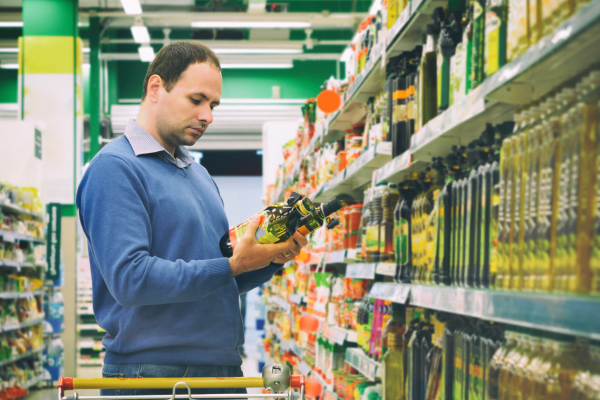
Christmas shoppers need to get cracking now
The silly season is almost upon us but if you’re planning the usual last-minute shopping blitz, think again.
Consumer expert Jo Ucukalo says Covid-19 has affected not just our buying habits - with many ordering online for the first time during the pandemic - but the time it takes to get those goodies to our door.
“If you want to ensure you get the right presents for your loved ones in time for Christmas, you have to be more organised than ever,” Jo says. “There are issues with supply and delivery, so you just can’t wait to afford that mad rush just before Christmas in 2021.”
To avoid the pitfalls of the “silly spending season”, Jo has some tips and tricks to manage your expectations and budget, as well as the lowdown on gifts that just aren’t worth your hard-earned dollars.
Complications caused by Covid this year may see even an organised shopper left empty-handed. We need to be ever so careful to have our gifts organised in time. We have prepared some tricks and tips for you to manage your expectations, budget and time for this holiday season. Let's work to make our Christmas 2021 merry rather than panicked.
Why do we need to start early?
Most Australians swoop on stores, both online and in-person, to buy presents somewhere between late November and early December. However, if you employ this strategy in 2021, you could either miss out on desired gifts or still be waiting for delivery in January. Unmerry Christmas, everyone.
“The pandemic has turned the world on its head, and is expected to cause even more havoc in the coming months,” Jo says. “More people are shopping online than ever, which has only added to the pressure for suppliers and consumers".
How has online shopping changed with Covid-19?
In 2020, four out of five Australian households (almost nine million) made an online purchase at some point during the year. More than 1.3 million were shopping online for the first time in their lives, as Covid-19 lockdowns kept shops shuttered and us indoors.
As we see lockdowns extending in Victoria and NSW, people are looking for comfort and entertainment on the internet. Online shopping is now a top pastime for more people. In essence, we are buying more and from places further from home. This has led to global shipping lines, which simply can’t cope with the demand, taking the unusual step of recommending lockdowns be eased.
“They are trying to explain to policy makers that allowing customers to spend their money in other ways, such as visiting restaurants, bars and events, will hopefully ease the strain on logistics network caused by an ever increasing amount of goods shipping around the globe,” Jo says.
Shopping locally is preferred but online shopping is easier
While 60 percent of the shoppers indicate they intend to shop locally, this is looking increasingly impossible with lockdowns potentially rolling into December. Covid-19 has affected our ability to buy what we want, when we want it, pushing more of us online. This, in turn, has put more pressure on delivery companies.
Australia Post has been struggling to cope with increased volumes since the onset of the pandemic. In December 2020, online purchases jumped 35 percent compared to 2019, with a record 52 million parcels delivered around Australia.

“The Federal Government allowed Australia Post to lower its performance standards, temporarily, to try to keep up with demand,” Jo says “Australia Post temporarily stopped its priority letters service, transitioned to an alternate-day delivery model, and was given more time to deliver intrastate letters. Unfortunately, it has never quite caught up to the pace which we’ve been buying online."
Australia’s postal service now sends 32 percent more parcels than it did before the pandemic, which amounts to an extra one million Australian households shopping online each month.
With half a million parcels expected to be dispatched every weekend from now until December 25, Australia Post has announced that weekend deliveries will continue for the rest of the year.
Australia Post launched a recruitment campaign for 4000 more delivery personnel across the country, a process that is ongoing and unlikely to be complete in time for the Christmas rush.
“The pandemic has also affected the availability of existing staff,” Jo says. “No less than 500 staff members are in isolation, causing Australia Post to postpone all parcel pickups from their retail outlets stores in NSW, ACT and Victoria for four days.”
Expect significant delays, especially from overseas merchants
And, if you’re thinking of ordering from overseas, it’s even more important that you get cracking now, Jo says. Factor in at least 20 extra days for international delivery as these parcels go through extra borders and custom checks before reaching your doorstep.
Don’t give an experience
Pre-Covid, tickets to a festival or a performance were considered a thoughtful gift. These days, it's like a Clayton’s drink - you know, the drink you have when you’re not having a drink. In 2021, giving an experience to a loved one is akin to handing over a receipt and asking the recipient to chase up the refund. Or telling them to wait til the pandemic is over - whenever that might be - before it can be enjoyed.
So, in most parts of Australia, all roads lead back to online shopping.
How to shop for the silly season
Make a list
Start by making a list of people and potential gifts, including some back-up options. The most popular products such as toys and clothing (about 2.5 million households shop for clothes and associated accessories during the season) are in high demand. Prioritise the popular gifts. The more sought-after an item, the less likelihood you have of snaring it for your loved one if you don’t get on to it quickly.
Allow for delivery time
The second most important consideration is the expected time it will take for the gifts to be delivered to your door. With 91 percent of the online shoppers using a mobile phone for shopping and a surprising 80 percent preferring free over fast shipping, the pressure on delivery services is immense. It becomes harder to deliver on time and also increases the risk of mix-ups.
Therefore, judging how much time it could take for the gift to reach your doorstep is crucial. Alcohol is easily available at the bottle shop a few minutes from your home, but the special edition Swiss army knife might take more than 60 days to deliver. So put those items at the top of your ordering list, too, even if they aren’t as popular.

Similarly, posting orders directly to friends and family needs to be approached with precision.
You don’t want to be the auntie, best friend or sibling whose present arrives after Christmas, do you? Especially if your family does a Kris Kringle and that’s the only present they might receive. Better for something to arrive way early and sit safely in the cupboard until the tree goes up, than arrive when everyone’s about to celebrate Valentine’s Day!
Don’t fall under the glitter spell
According to the Financial Planning Association of Australia, we spend $19.8 billion on just Christmas presents – a profligate amount by any standards.
There are a number of tactics employed by retailers that push us to spend more cash than necessary on Christmas,” Jo says. “This is made worse by the fact that a staggering 73 percent of Australians work without a budget and, hence, overspend – as much as $500 during the holiday season.”
If you are able to get out and about, the festive retail environment — with its glittery decorations, carols on repeat, images of happy families and deals everywhere — can quickly lure you into spending more than you should.
This also translates to the virtual world, where flash sales lure us with the promise of great deals. You only have to look at the much-promoted and eagerly-awaited Black Friday and Boxing Day sales to see the impulse buy at work. We get free shipping, after all, why not buy it?
Ask yourself before you buy anything online, or in a store, one very important question: Can I really afford it? You could be paying for that gift long after the joy of giving has gone.
What are my rights as an online shopper?
As the pandemic spread, so did the growth of online platforms. We see so many new online stores every day, it has become almost impossible to know which of them can be trusted.
In theory, all online stores with a physical presence like Myer and Target, in Australia are covered by Australian Consumer Laws. When a store is overseas, Australian laws do not apply. And it can be impossible to get any help or a refund if things don’t work out. If the product never arrives, or it’s faulty, or it’s unsafe, there is very little that can be done about it.
We might also end up with parcels that we don’t like or aren’t what we ordered. In such situations, you will usually have the right to claim refunds and returns and most reputable online shopping stores will make this easy.
“However, only local stores or those registered under the Australian laws are bound by them. Any international online stores that you buy from tend to operate with their own country’s terms and conditions, and their own refund policies as a consequence, if you can find them at all.”
Traps to avoid
When we’re wondering how to pay for Christmas, the prospect of getting it now and paying for it later is particularly appealing. But, be warned, unlike credit cards, Buy Now Pay Later (BNPL) services are often only loosely governed by a code of conduct, written by the BNPL companies themselves, rather than an authority you can turn to if things get sticky.
“It’s probably best not to experiment during the holiday season - stick to what you know!” Jo says. “If you want to try out Buy Now Pay Later, then it would be best to wait till January.”

And while we hate to be the Grinch who Stole Christmas, we also want you to avoid those trying to take advantage of shoppers too eager to part with their cash.
The most prominent traps include fake items, scam advertising, BOGO (buy one, get one), product pairings, and multiple deals that hurt both your privacy and your pocket.
Retailers often engage in unethical practices during the Christmas season to encourage impulse shopping or to clear poor quality merchandise.
Beware of enticing caps, fancy displays, gift cards, and cheap check-out aisle items when doing your Christmas shopping.
The bottom line
It is understandable that we might want to spend more than we can afford, amid the excitement of the Christmas season, and the thought of making someone you love feel special. But it’s important to think while you shop, if you don’t want to be paying for impulse buys months after you have been struck by Christmas generosity. Avoid end-of-season sales and ploys by retailers to get you to bust that budget. Save time and money by planning your gifts ahead of the season and avoid the holiday shopping madness. We wish you a very happy shopping season!
If you experience trouble while Christmas shopping, either with an item or delivery, all you need to do is say the magic words 'Help Me Handle It'. We will help you get action with your complaint.






